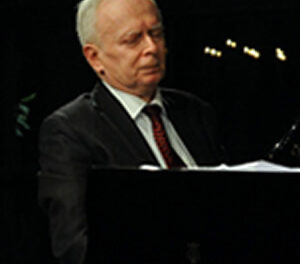It was the goal in this 2011 production, fully titled as The Gershwins’ Porgy and Bess, to give dimension to black culture and humanize the depiction of race on stage. Drawing its inspiration from the famous opera Porgy and Bess, this work has been described as a new musical which includes changes to the plot, dialogue, and score in an attempt to provide depth and personality to the characters.
One of the controversial aspects of Porgy and Bess from the very beginning was the perceived stereotypical depiction of the lives of southern Blacks as conceived by a white novelist and a white composer. The adaption by Suzan-Lori Parks attempts to expand character development and broaden background information. Other aspects of the adaption seek to mold the work in a Broadway musical format rather than that of a classical opera. Gershwin had labeled his version a “folk opera” which reveals something of his relationship to the DuBois story and libretto. The police brutality portrayed in tonight’s performance was a clear reflection of recent history.
The large cast for the Justice Theater Project opening night performance at Umstead Park United Church of Christ, led by Phillip Bernard Smith as Porgy and Danielle J. Long as Bess, made good use of Parks’ adaption in telling the touching story of love and devotion. Long’s portrayal of Bess and her wrenching struggles with addiction and self-esteem was masterful; her rendition of “I Loves You, Porgy” was just as intense and sincere as her inability to resist Sportin’ Life’s “There’s a Boat Dat’s Leavin’ Soon for New York.”
Smith portrayed Porgy as a growing and developing character. Once Bess began to respond to his simple, but generous ways, he blossomed more and more. You can’t help but root for Porgy as Smith puts his all into the closing anthem, “I’m on my way.”
Sportin’ Life was a slick and unflappable dude in the capable hands of Christopher N. Baily, Sr.; his soaring tenor voice delivered some of the most pleasing hits from the show. The “Venders’ Trio,” featuring Chandra Branch as the Strawberry Woman, Vincent Bland as the Honey Man, and Noah Anderson as the Crab Man, was a special moment of authenticity. The lovely Martha Flowers, who toured with the State Department-sponsored international tour in the 1950’s and who resides in Chapel Hill, will vouch for that.
Other outstanding portrayals included Chase Rivers’ powerful portrayal of Crown, Connie McCoy’s beautiful interpretation of Clara, and Terra Hodge’s sensitive rendition of Serena. Moses T. Alexander Greene was a strong Jake.
The cast included well-seasoned performers, most of whom have appeared in previous JTP productions. Without exception the soloists had strong and pleasing vocal qualities and sang with a sense of identity and engagement. The singers were partnered with a stage band, led by Ronzel Bell, with Shane W. Dittmar, Steven Diggs, Jr. (saxophone), Sandra Hawks (keyboard), Ryan Isaac Robinson (trombone), Chris Suggs (trumpet), and Bobby Sherard (percussion).
The performance began slowly, with an unsettled feel about it. Opening night jitters are not uncommon. Connie McCoy’s rendition of “Summertime,” as well as “Roll Them Bones,” and “A Man’s Got a Right to Play,” all went by without audience response. Then Green as Jake along with the whole company woke up the show and the audience with a rousing performance of “A Woman is a Sometime Thing.” Porgy appeared to get the game of craps going. He is poor and crippled (but no goat cart in this production) and full of potential. When burly Crown, sung menacingly by Rivers, appeared with his woman, Bess in a tight, bright red dress, you knew the show was on; brother, the show was on!
The plot boils over quickly with drugs, cheap whiskey, and a disagreement leading to murder. Crown must flee, leaving Bess to fend for herself. All turn their backs on her – except Porgy, who takes her in.
Act 2 begins with Jake (Moses T. Alexander Greene) and the other fishermen preparing for work (“It take a long pull to get there”). Porgy has won over Bess with his gentle and generous love and sings “I got plenty o’ nuttin’.” He was born a cripple and made for loneliness he believed, but now he has Bess and material nothingness is plenty for him. When they are alone they sing the rhapsodic duet “Bess, You is My Woman Now.” But things get complicated when Crown returns and refuses to let Bess go.
The charm and unforgettable message of Porgy and Bess is more than the story it tells, but is the gift of Gershwin’s treasure chest of marvelous tunes; entertaining, yes, but also leaving us with a deeper understanding of issues of race, oppressive gender roles, marginalization, poverty, consumerism, and ultimately the invincibility of the human spirit.
Director Royals has built into this performance a sense of community and commitment. All the people on stage and off have invested themselves in a performance that will reward you significantly as well as entertain you generously.
For more information and scheduled performances see the sidebar.











